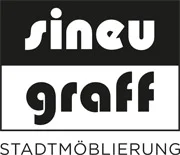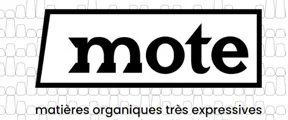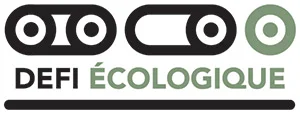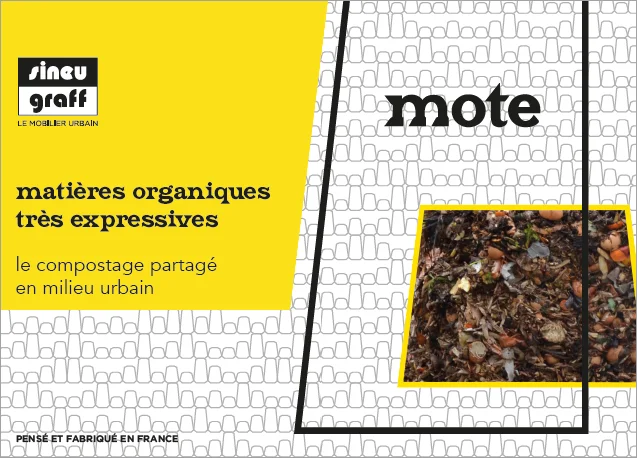Keine Artikel
Preise zzgl. MwSt.
Produkt erfolgreich zu Ihrem Angebot/Bestellung hinzugefügt
Sie haben 0 Artikel in Ihrem Angebot/Bestellung. Es gibt 1 Artikel in Ihrem Angebot/Bestellung.
Mote*: Shared composting in urban environments
Composting reduces the volume of waste by 90% and, in the long run, recovers 1% in the form of pure humus and mineral elements.
CONTEXT
Selective waste sorting was introduced in France in the 1970s, but did not include organic matter which represents around 1/3 of the waste in our litter bins. Now that we have become aware of the benefits of local channels, we try to ensure that compost is relocated as little as possible and treated by users themselves at a local level. But what should we do if we live in the city without a garden?
Because urban living is collective, waste is also to be dealt collectively. Composting is therefore a “shared” process and is becoming a mainstay of urban ecology.
Urban ecology is one of the concerns of our customers. Sineu Graff has teamed up with AliénorMorvan, a member of the DéfiEcologique Design office, to create the Mote composting island and thus contribute to one of the many aspects of urban ecology.
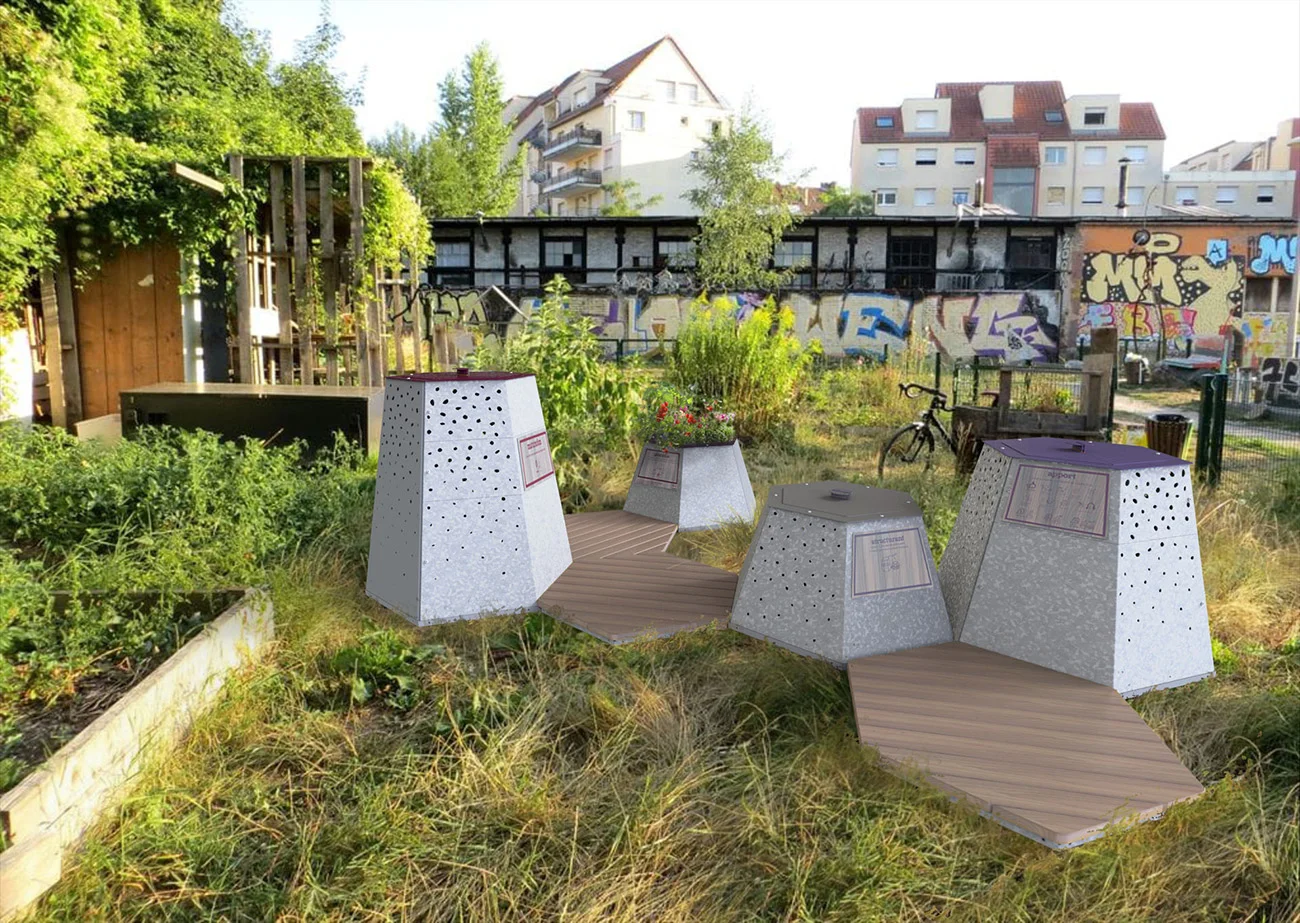
MOTE: WIDENING ACCESS TO SHARED COMPOSTING IN URBAN ENVIRONMENTS.
The island is designed to be a landscape. This modular product proudly displays its precious contents to dispel the idea of waste. The island embodies the plant lifecycle from growth to decomposition.
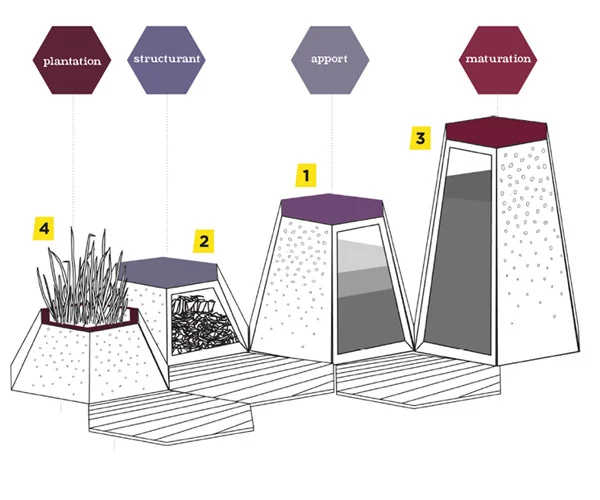
Composition of the island
- Anintakebin: Users deposit their organic matter here.
- A structuringbin: Storage of brown matter (dead leaves, shredded matter, etc.) Essential for the nitrogen / carbon balance, 1/3 of a bucket for each intake.
- A maturingbin: When the intake bin is full, the compost is transferred to a larger bin where it turns into fertilizer after a year.
- A plantingbin: This bin remind us of the purpose of composting. The island therefore embodies the entire plant lifecycle from decomposition to growth and so on.
- Slattedflooring: Providing dry access to the island.
The island was experimented in 7 different social contexts during 2 years: primary school, campus, third place, a working-class neighbourhood commitee, a prosperous residence, a town and a care home.
Different configurations are possible to suit the location, the community and the budget.
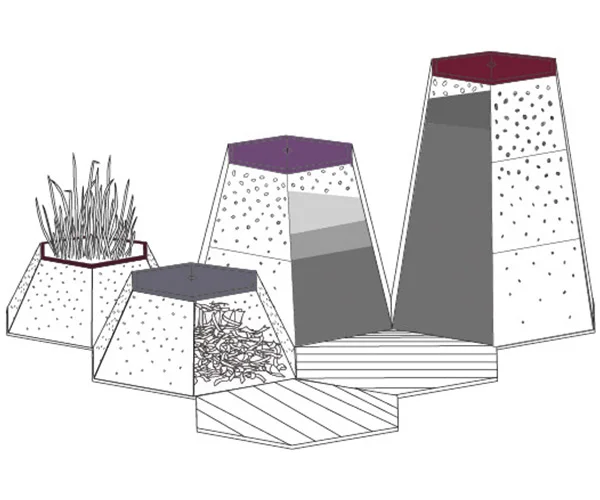
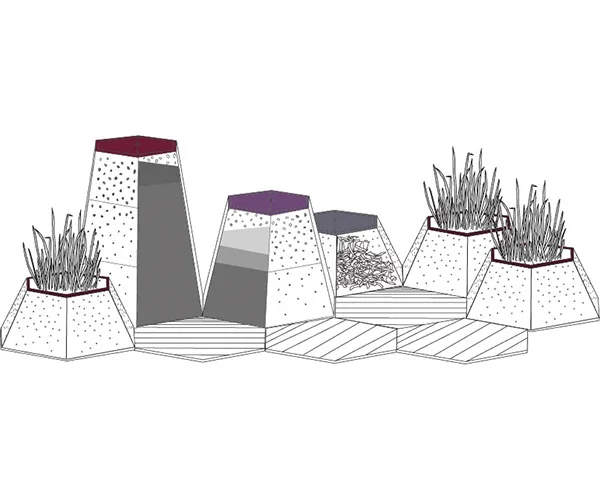
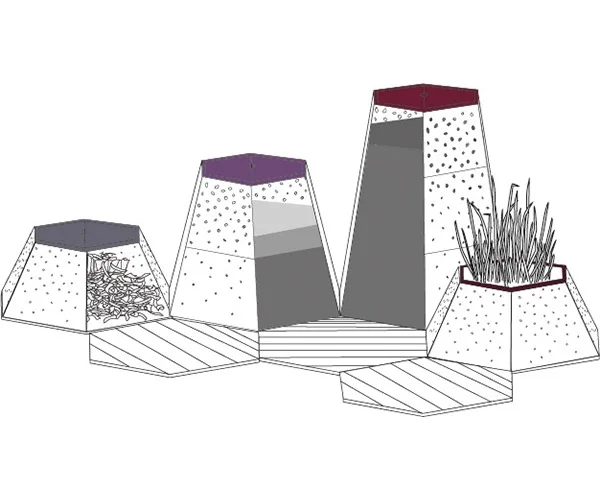
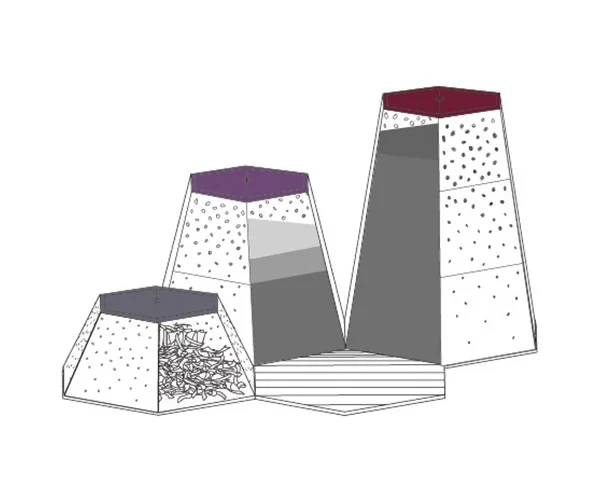
MOTE :A VECTOR OF SOCIAL LINKS
The Mote island was designed for an ideal number of 15 households.
In a shared composting context, it takes about a year for the decomposition process to reach its end: the input bin generally takes 3 months to fill up, so it must be transferred every 3 months. Then, after 1 year, the harvest celebrates the end of the composting cycle. Each composting household can then help itself according to its needs. The remainder can be offered to the city's green space department to be spread in the neighbourhood's green spaces.
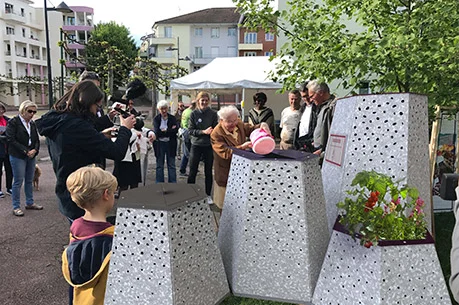
These transfer stages, which are necessary for the proper functioning of the compost bin, will allow the community to share experiences. Composting then becomes an opportunity to forge friendly links, sometimes of solidarity, with the other inhabitants of the neighbourhood.
MOTE: A PEDAGOGICAL TOOL
Various workshops can also be offered to strengthen the knowledge and links of the participating households or to welcome new participants.
For these activities, DEFI-Écologique and its territorial partners specialised in mediation on the subject of recycling offer you their services.
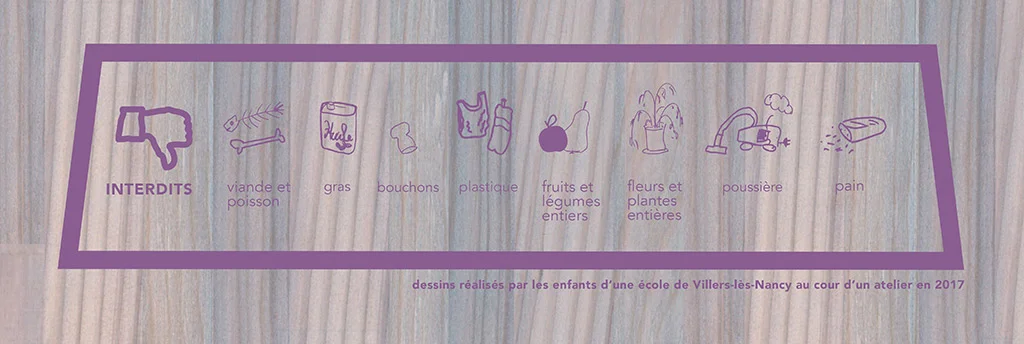
Clear identification on the island directly
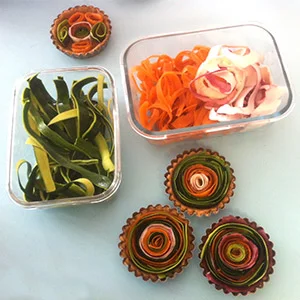
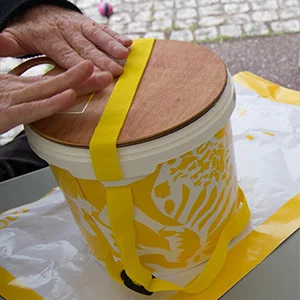
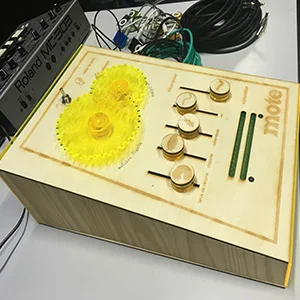
Workshops: Cuisine ta poubelle, Tuning de bio-seaux, Les intraterrestres
Motan original idea from AliénorMorvan, in partnership withDéfiEcologiqueand produced by Sineu Graff!
*MOTE in French: Matières Organiques Très Expressives

